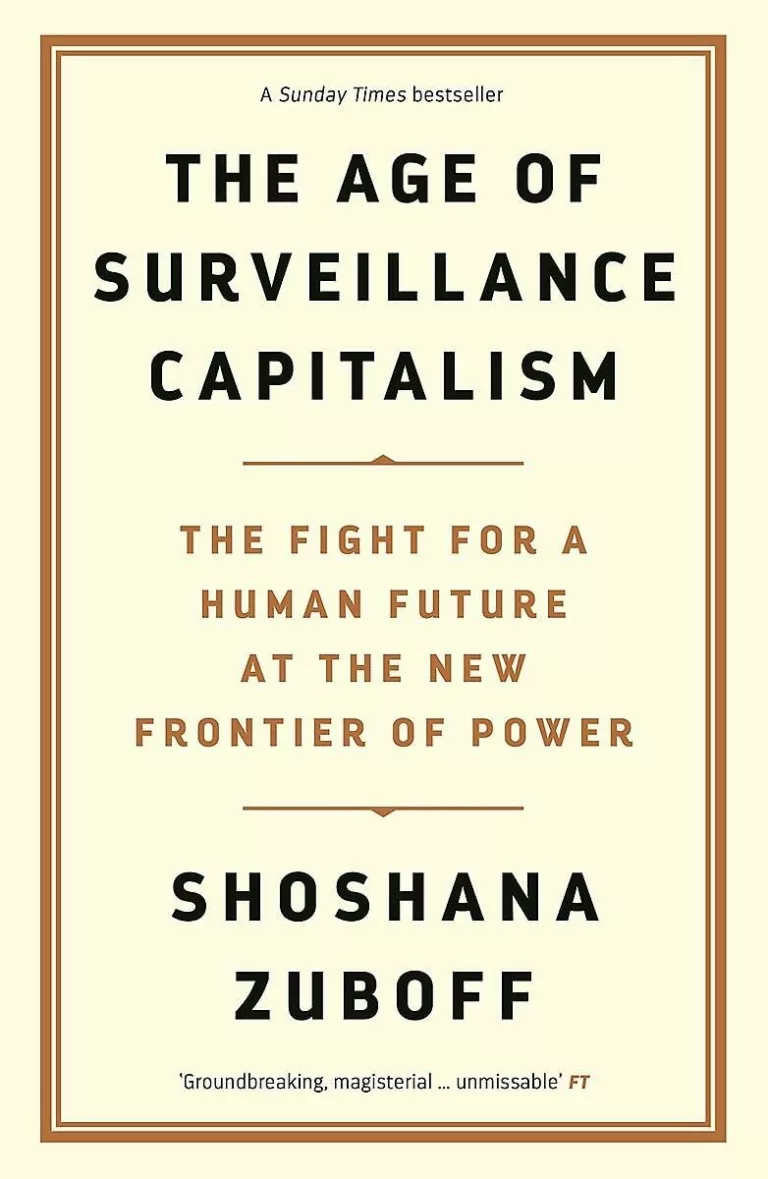
Titre : The age of surveillance capitalism, the fight for a human future at the new frontier of power
Auteur : Shoshana Zuboff
Éditeur : Profile Books
Pages : 691
Année : 2019
ISBN : 978-178125-6855
Tous tracés, et alors ? Bienvenue dans le capitalisme de surveillance ! Les géants du web, Google, Facebook, Microsoft et consorts, ne cherchent plus seulement à capter toutes nos données, mais à orienter, modifier et conditionner tous nos comportements : notre vie sociale, nos émotions, nos pensées les plus intimes… jusqu’à notre bulletin de vote. En un mot, décider à notre place – à des fins strictement lucratives. Des premiers pas de Google au scandale de Cambridge Analytica, Shoshana Zuboff analyse cette mutation monstrueuse du capitalisme, où la souveraineté du peuple est renversée au profit non pas d’un Etat autoritaire, comme on pourrait le craindre, mais d’une nouvelle industrie opaque, avide et toute-puissante, menaçant dans une indifférence radicale notre libre arbitre et la démocratie.
Shoshana Zuboff est une universitaire, professeure émérite à la Harvard Business School, sociologue et femme de lettres américaine. Ses écrits portent principalement sur les sociétés commerciales qui œuvrent dans Internet et leurs incidences sur les sociétés de personnes. Elle est l’auteur de trois ouvrages, chacun signalant les débuts d’une nouvelle époque dans notre société technologique. Son ouvrage In the Age of the Smart Machine: The Future of Work and Power » est devenu un classique qui anticipait la manière dont les ordinateurs révolutionneraient nos espaces de travail. À la fin du siècle dernier, The Support Economy: Why Corporations Are Failing Individuals and the Next Episode of Capitalism (with James Maxmin), écrit avant l’invention de l’ipad ou de uber, prédisait l’expansion de produits technologiques personnalisés pour chaque individu. Il alertait des risques faisant peser le capitalisme sur les individus et la société. En 2019, The Age of Surveillance Capitalism: The Fight for a Human Future at the New Frontier of Power, résume des années de recherches et révèle un monde dans lequel les utilisateurs de technologie ne sont ni des clients, ni des employés ni des produits. En réalité, ils constituent la matière première d’une toute nouvelle industrie : une économie de la surveillance.
INTRODUCTION
PART I – The foundations of surveillance captialism
PART II – The advance of surveillance capitalism
PART III- Instrumentarian power for a third modernity
CONCLUSION
Lors de sa sortie en 2019, l’ouvrage de Shoshana Zuboff n’était pas encore proposé en version française (elle arrivera un an plus tard). Mes extraits selectionnés sont donc en version originale ci-dessous.
Déjà sensibilisé à la notion de vie privée numérique et aux possibilités d’analyser le comportement des utilisateurs en ligne (e.g. c’est bien l’un des objectifs du marketing digital), je prends une claque à la lecture du livre. Ce ne sont pas tant les 691 pages qui m’impressionnent, mais plutôt la capacité de l’auteur à détailler avec une précision diabolique les mécanismes d’une nouvelle industrie, d’un nouveau capitalisme, celui de la surveillance. Le récit de Shoshana Zuboff est brillant, implacable, sourcé et terrifiant.
Même les plus paranoïaques d’entre tous n’auront probablement pas envisagé une telle capacité de manipulation de la part de certains géants de la tech. Nos comportements, nos faiblesses, nos émotions, notre intimité, nos amitiés, nos angoisses, nos traits psychologiques, nos orientations sexuelles, nos futurs comportements, nos actions anticipables… toutes, absolument toutes les données générées sont collectées pour servir de matière première à une industrie dont le but est d’anticiper et d’agir sur nos comportements futurs, à notre insu. On y découvre un cynisme qui fait froid dans le dos, des techniques de communication bien rodées et des comportements de certains acteurs de la tech absolument révoltants.
Nous sommes en 2024, soit 5 ans après la rédaction de « l’Age du Capitalisme de la Surveillance ». Cinq années après, on ne pourra que toujours regretter les trop nombreuses atteintes à notre vie privée numérique. L’avenir semble bien sombre pour la protection de la vie privée et la défense de nos démocraties.
En résumé, un ouvrage majeur à lire et à conserver précieusement dans sa bibliothèque… ouvrage que nous pourrons brandir dans une dizaine d’années, en déclarant qu’on nous avait prévenu…
Se faire plaisir et soutenir la librairie indépendante de votre quartier et ce blog, c’est possible ! Achetez ce livre au même prix chez leslibraires.fr!